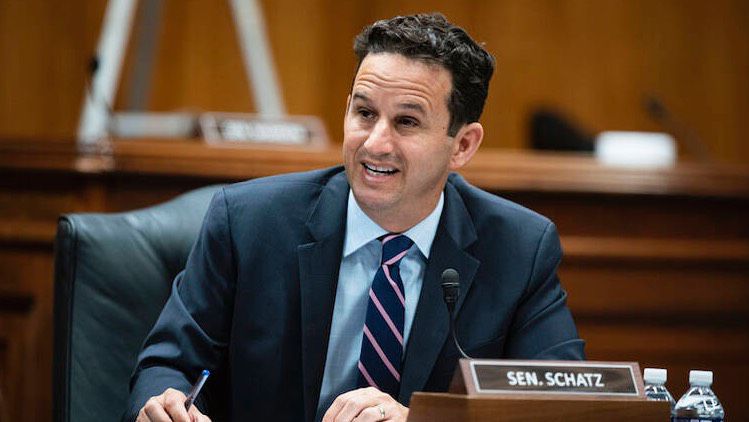WASHINGTON — U.S. Sen. Brian Schatz, D-Hawaii, introduced a bill Wednesday that would give federal employees a 7.4% pay increase in 2025.
A companion measure was introduced in the House by Rep. Gerry Connolly, D-Va.
“Whether inspecting our food, conducting medical research or caring for our veterans, federal workers play an important role in our everyday lives and deserve pay which reflects that,” Schatz said in a statement released on Wednesday. “After years of pay freezes, our bill gives these dedicated public servants a much-deserved raise.”
The Federal Adjustment of Income Rates would help shrink the gap between government and private sector pay rates. According to the Federal Salary Council, federal employees on average earned 27.54% less than their private sector counterparts. A 2023 Office of Personnel Management report found that pay satisfaction among federal workers declined to 57% from 67%.
Schatz noted that under the Biden administration, federal employees received raises of 4.6% and 5.2% in 2023 and 2024, respectively, but those increases have failed to keep pace with rising labor and living costs.
The measure received support from the National Active and Retired Federal Employees Association and other organizations representing federal workers.
“Congressman Connolly and Senator Schatz propose a strong federal pay raise via the FAIR Act to counter a resilient labor market, steadily increasing private-sector pay, continued price increases, and the persistent gap between private-sector and federal pay for similar jobs,” said NARFEA president William Shackelford. “We’re grateful for their support for hardworking public servants, and ensuring federal pay rates approach levels needed to recruit and retain an effective federal workforce.”
Randy Erwin, president of the National Federation of Federal Employees, said higher wages are necessary to retain qualified federal employees.
“Last year, federal employees again lost ground in the fight for a fair wage,” Erwin said. “Pay increases for 2024 were not enough to offset rising inflation and the widened federal-private pay deficit, which rose 5% and is now over 27%, according to the most recent report from the Federal Salary Council. Congress must understand that to attract and retain a skilled workforce that best serves the American people, we need to pay our civil servants competitive wages. The FAIR Act is a simple, yet effective tool to ensure all federal employees can earn a living wage and their communities receive the best essential services from the federal government.”
Michael Tsai covers local and state politics for Spectrum News Hawaii. He can be reached at michael.tsai@charter.com.



